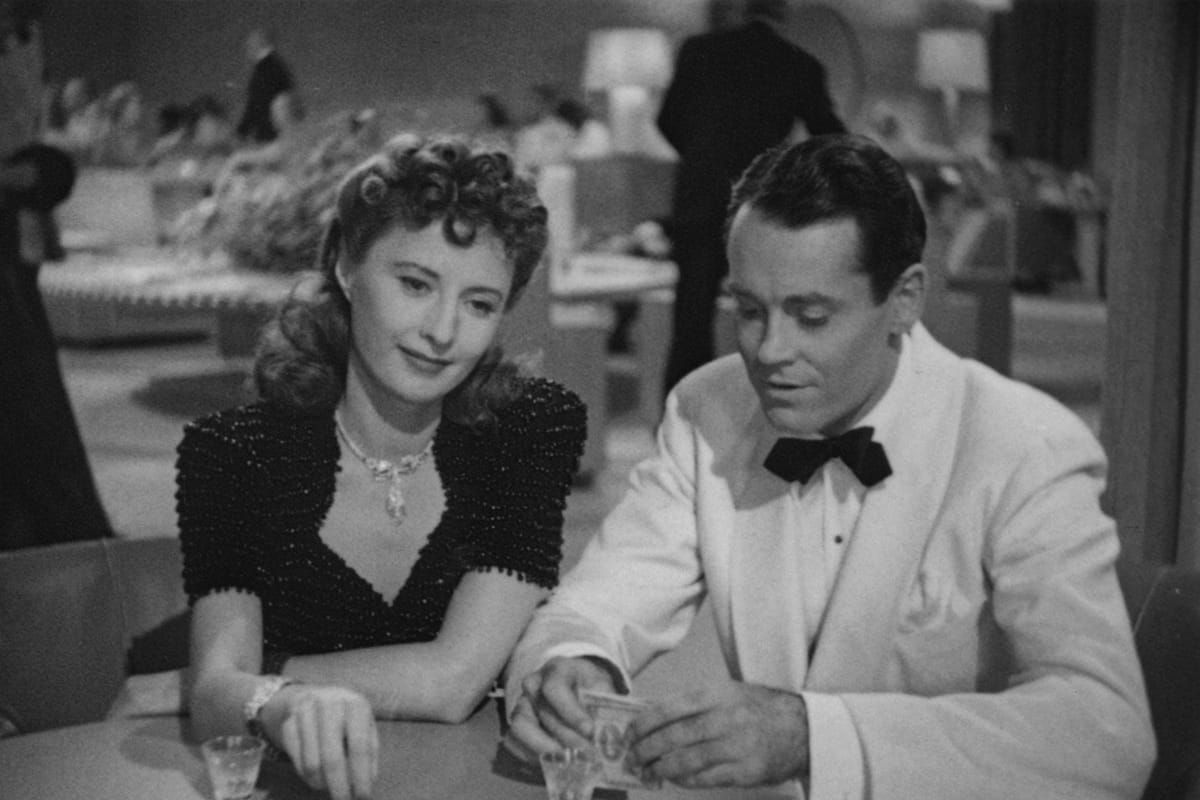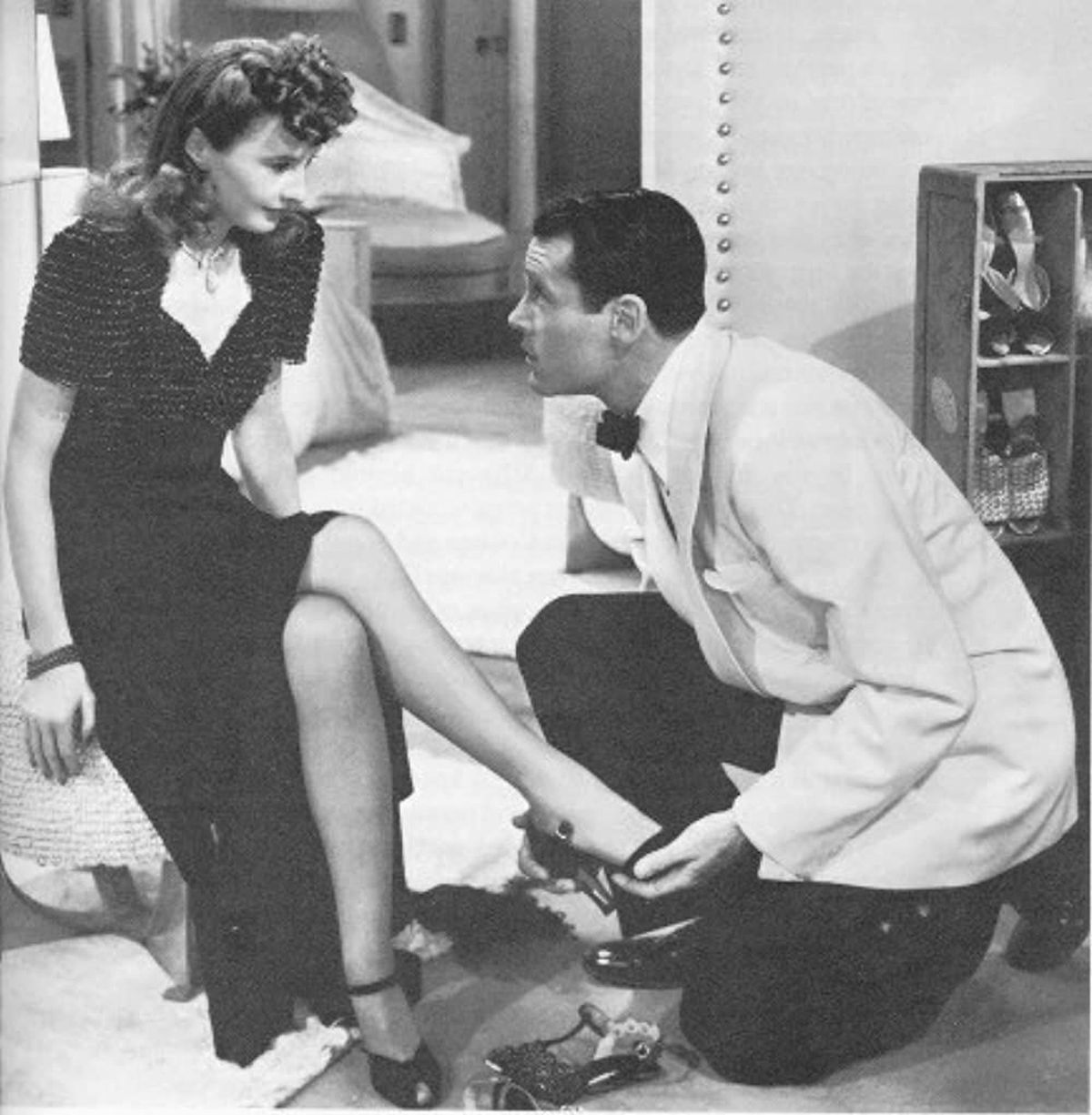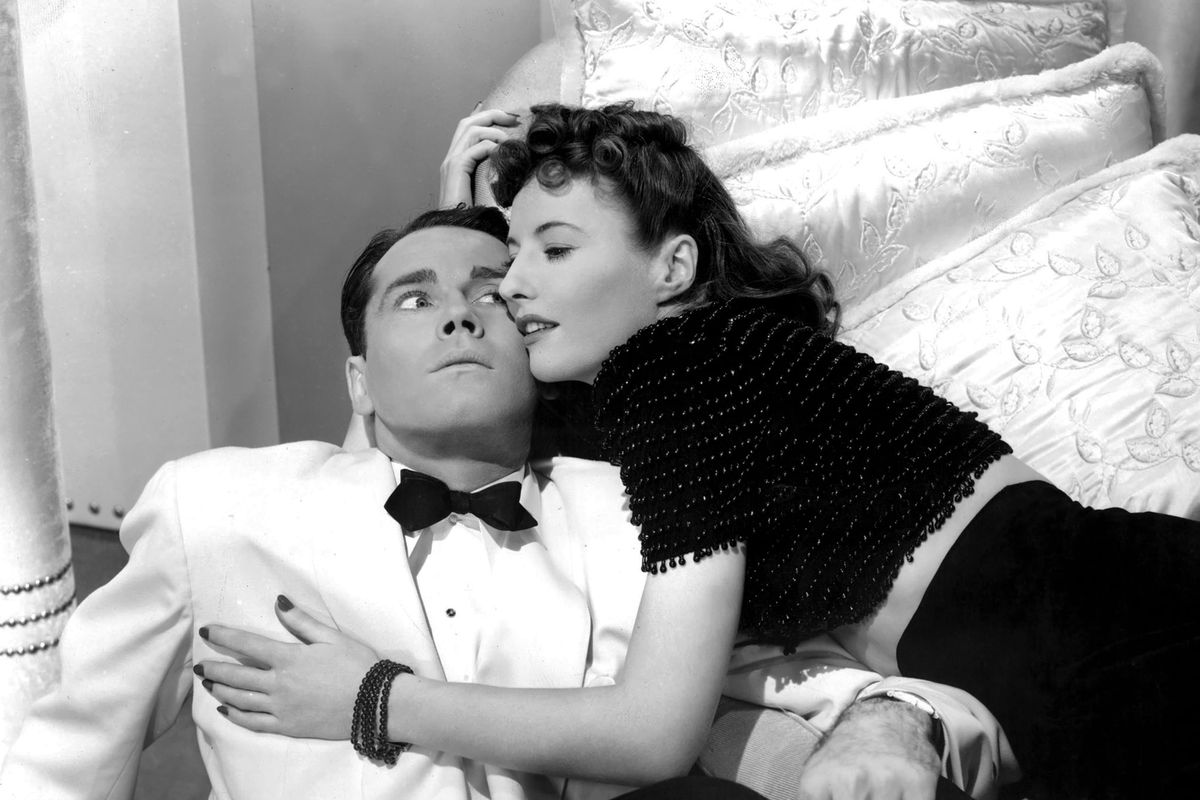Picture Perfect: Screwball comedies are never gone, and ‘The Lady Eve’ is one of the best
Henry Fonda and Barbara Stanwyck in “The Lady Eve” (1941).
The days around Thanksgiving are one of the best times of the year to watch classic movies. Since there are few great movies about Thanksgiving, with the only one that comes to mind being “Planes, Trains and Automobiles,” the next best things to watch around the holiday are films that make you feel relaxed. Something you can put on after a delicious Thanksgiving dinner that is lighthearted but guaranteed to keep you entertained.
So why not put on a movie that’s been entertaining everyone for five or more decades? After all, great cinema is timeless. Regardless of when the film was released, a classic can be just as enjoyable as any film that’s released today, if not better, because the classics have stood the test of time. Classic films are like fine wine – some get better with age.
And one genre of movies that has gotten better with age is a genre that no longer exists – the screwball comedy. Much like disco and the floppy disc, screwball comedies are a product of a bygone era, but most people have fond memories of them. Screwball comedies were mostly made in the golden age of Hollywood, around the 1930s and 1940s, and are similar in concept to a romantic comedy but quite different in execution.
Film critic Molly Haskell defined screwball comedies as “fables of love masquerading as hostility.” Their defining feature is often shown through a reversal of power in the then-typical gender roles in a relationship, with the female being the dominating personality and the male being far more submissive. One thing to note is that all Hollywood films at the time had to follow an extensive list of established rules known as the Hayes code.
Some rules included that you couldn’t show the act of lovemaking, or even show two people in the same bed, or have a single kiss last more than 3 seconds. Screwball comedies often did their best to get around these limitations by making them as raunchy and sexually charged as they were allowed to be with dialogue that had hidden erotic meaning that got past the censors.
The screwball comedy eventually died for a number of reasons, including a re-evaluation of the gender roles in society. But the biggest reason was the collapse of the Hayes code in the late 1950s and the creation of film rating system that we still have in place today.
Still, it is fascinating to go back and look at screwball comedies like “It Happened One Night” and “Bringing Up Baby,” mostly to see two people go back and forth on loving the other to pieces and then hating their guts the next minute. You couldn’t make a film as quick-witted yet universally delightful as “The Philadelphia Story” in 2021.
But if I had to pick just one screwball comedy to watch this Thanksgiving, it would certainly be the best of the genre – Preston Sturges’ “The Lady Eve.” I’ve never heard romantic dialogue as sharp or quirky as it is in 1941’s “The Lady Eve.”
The boiling chemistry between Barbara Stanwyck and Henry Fonda is intoxicating, certainly during their intimate moments, but even more so when they hate each other. And yet, their love-hate relationship always feels organic, never forced. Like these two were made for each other, but their backgrounds and egos prevent them from realizing this.
The story follows Charles Pike (Fonda), the son of a wealthy brewing tycoon, as he returns from a yearlong expedition through the Amazon. Charles and his overprotective bodyguard Muggsy (William Demarest) board an ocean liner heading back to the States, where every woman onboard is interested in getting to know him and his money. But one woman, Jean Harrington (Stanwyck), is far more interested in making a sucker out of him.
Jean is a con artist, just like her father (Charles Coburn), using her beauty and ability to rig card games to cheat rich men out of their money. She initially sees him as a meek, naïve boy that she can use, while he is smitten with her. But after they have a quiet, intimate moment together, she starts to fall for him, which complicates the many lies that she and her father have told him.
What follows is the funniest battle of the sexes put to screen. Not just taking constant jabs at one gender, but genuine moments of reflection and honesty, such as the moment when Jean starts to fall for Charles. It is one long take that allows Fonda and Stanwyck to show off their unparalleled acting abilities, where both are witty yet vulnerable.
“The Lady Eve” sets the standard for all romantic comedies and screwball comedies and still manages to just as heartwarming and spicy by today’s standards. The truest definition of a timeless work of art.


